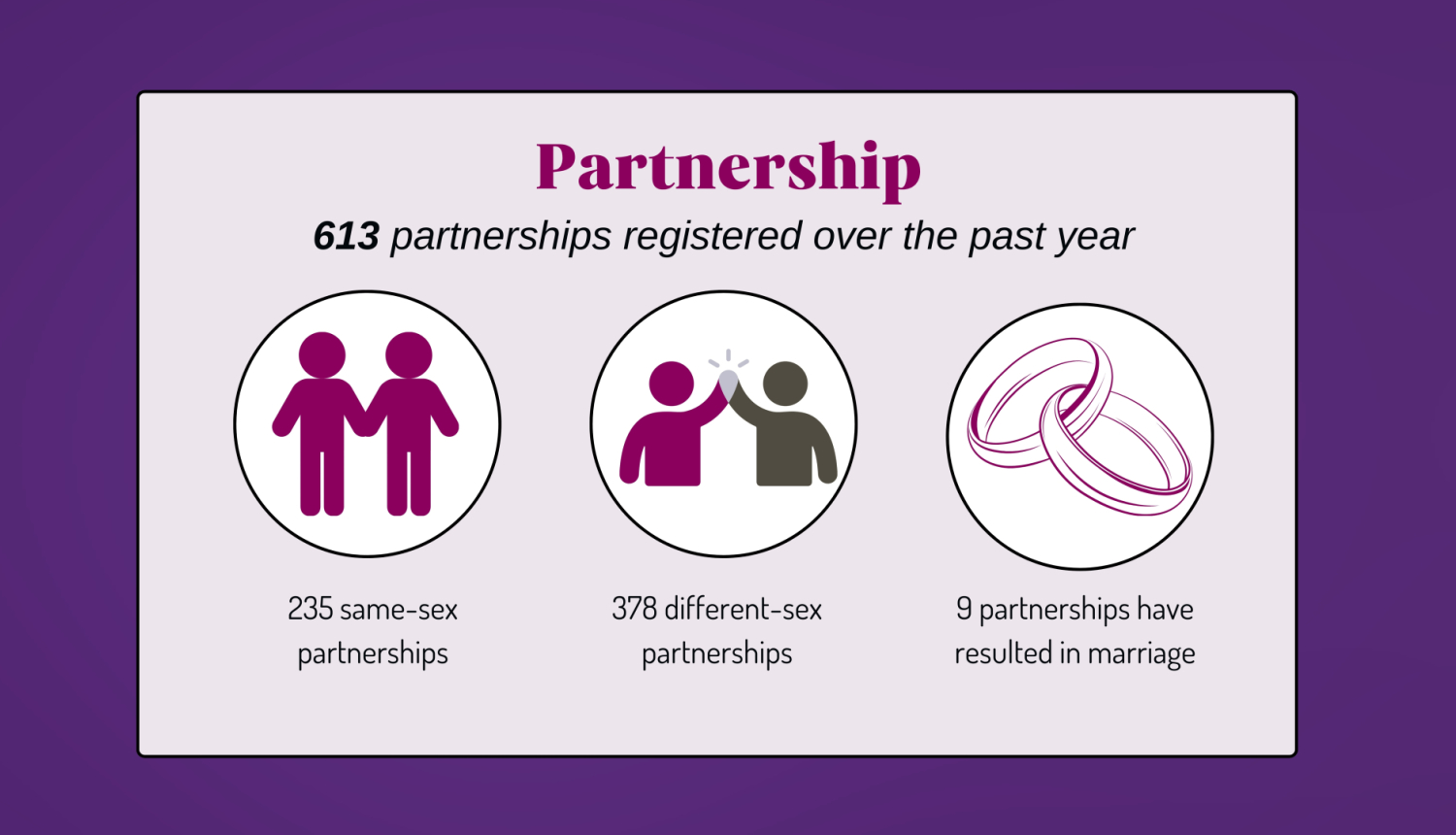A year has passed since the partnership framework developed by the Ministry of Justice entered into force, ensuring legal, economic and social protection for all families. Statistics from the Office of Citizenship and Migration Affairs show that people have actively exercised their new rights – over this period, 613 partnerships have been registered in Latvia, including 235 partnerships between same-sex couples. Minister of Justice Inese Lībiņa-Egnere notes that the introduction of partnerships in Latvia has been a significant step in respecting and strengthening human rights, especially at a time when many parts of the world have seen a decline in democracy for several years in a row.
Minister of Justice Inese Lībiņa-Egnere: “At a time when the value of human rights is being eroded and in many places there is a growing demand for the ‘strong hand’ of authoritarianism, we can be proud that Latvia is appearing on the world map as a country where human rights are being strengthened. Strengthening human rights is a way to protect our democracy and prevent fertile ground for populism. Moreover, as a society we only benefit when every resident feels happier and more connected to Latvia. This also contributes to Latvia’s position, reflected in various human rights index results, as a place favourable for investment. International companies, when choosing where to invest, pay attention to whether a country respects human rights and how employees and their families will feel there. The adoption of the partnership framework has been a clear signal that Latvia respects the human rights of every individual.”
An analysis of the first year of partnership registrations shows that the opportunity has been taken up equally actively by different-sex and same-sex couples. This confirms that the partnership framework serves as legal protection for a broad range of society, regardless of the partners’ sex, providing the opportunity to formalise their relationship and receive related social and economic guarantees.
Statistical data show that some partnerships are later converted into marriages, serving as a transitional stage before marriage. There are currently at least nine recorded cases where partners who initially registered a partnership later chose to marry. This trend demonstrates that partnership provides couples with legal protection and a sense of security until a decision is made on marriage. As such, partnership and marriage are no longer seen as opposing alternatives, but rather as complementary legal institutions.
There have also been cases where people at the end of their lives have chosen to enter into a partnership as a symbolic gesture to settle any remaining matters with their loved one, and to be able to pass away with peace of mind. This option ensures the legal protection of the partner even if the relationship is formalised shortly before death, for example to address social and healthcare matters.
The Ministry of Justice reminds that a partnership can be registered by two adults – whether of different sexes or the same sex – who share a common household and have no impediments to entering into a partnership. A partnership grants rights such as making decisions on the partner’s medical treatment, receiving social guarantees, benefiting from tax relief on mutual gifts and loans, as well as other forms of legal protection. Information on the establishment and termination of a partnership is recorded in the Register of Natural Persons.
Further information on partnership registration, including contact details of notaries and frequently asked questions, is available on the website of the Ministry of Justice.



